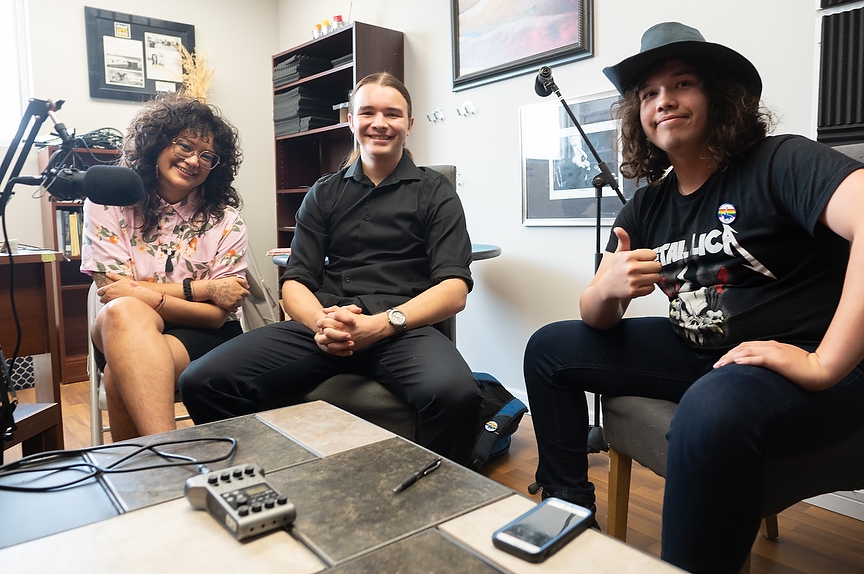
Grande Prairie youth are gaining a voice, discussing important topics while learning from elders and community members along the way.
The Peyakoskan Podcast was launched in partnership with the Grande Prairie Friendship Centre and has found a group of local youth who have gathered to start a storytelling experience.
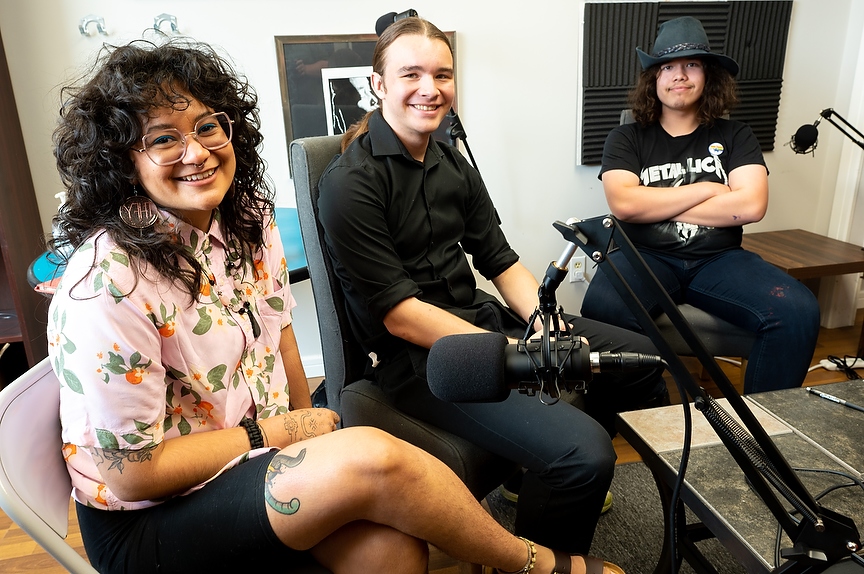
“This is a way of bringing storytelling from indigenous culture and modernizing it, which is beautiful,” said Sammy Paquette, 18, who has been working on the podcast.
Paquette explained storytelling from an indigenous outlook is important in sharing with the next generation of children. Still, he explained that youth perspectives also bring a new view on topics with a different moral compass.
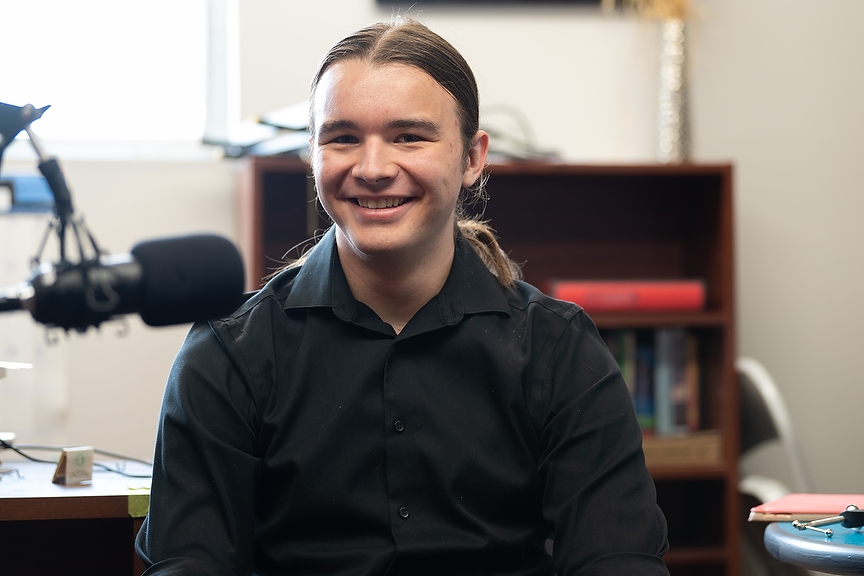
Natal Rivas Bolaños has been working with youth on the storytelling in the podcast and said youth representation matters.
“Being a youth, it's oppressive,” said Bolaños, noting some don’t realize they have rights. The podcast is creating a space for them to advocate for themselves.
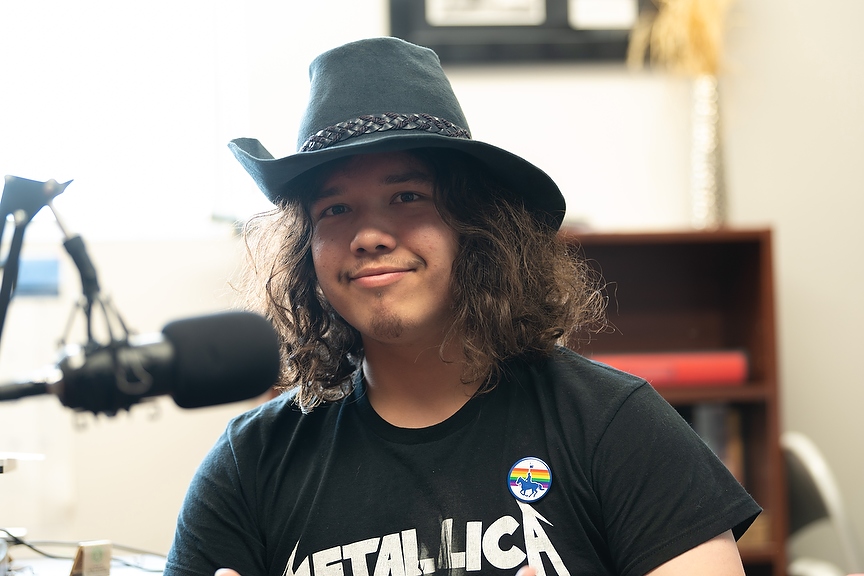
Brett Calvin Stanly English, 15, first heard of the Peyakoskan Podcast through school, and after listening to podcasts like Joe Rogan knew he wanted a chance at the mic.
In a recent episode, English interviewed his grandmother Loretta Parenteau-English, a local elder.
There, English learned more about his grandmother's life, particularly her younger years, and the “amazing humour” she shares.
He noted a story she shared on the podcast about children thinking some drunk people were walking around like zombies actually being zombies.
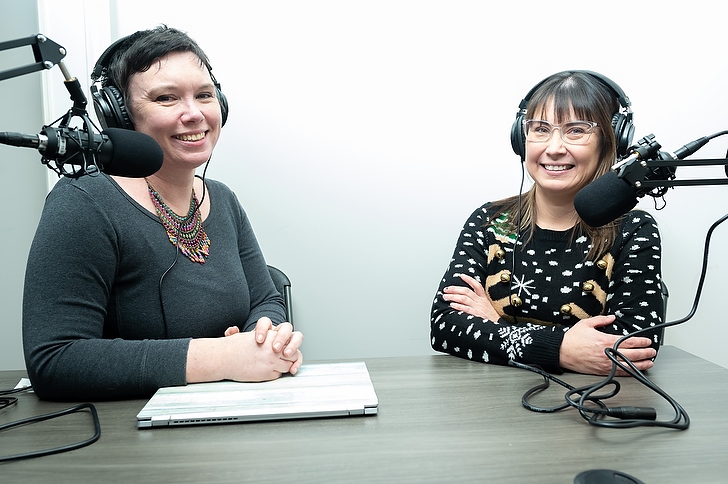
Cara Jones, podcast program co-ordinator, has taken the group of youth and let them interview and learn in various settings, one being the Growing the North conference.
Paquette first dipped his toes into the world of storytelling through a podcast there.
“It's a lot of critical thinking involved in this sort of stuff, and that's one of the essential skills you learn through podcasting.”
He reminded himself to listen, reply, and listen as he did his first podcast interview.
Paquette interviewed Charles Rouleau, CEO of Sucker Creek First Nation group of companies, who works with First Nations youth in the construction industry; he then went and spoke to other speakers while at the conference, which led to him getting a job.
“I'm learning networking through podcasting, which is a very underrated skill when you're first coming out as an adult,” said Paquette.
Since starting the podcast, Paquette has gained opportunities to work with local companies and is beginning to learn about entrepreneurship, among many other business-related items.
English said the podcast is giving him a new outlook on life.
“I'm starting to learn that I shouldn't be afraid of failure because, through failure, I learn something,” he said.
English expressed his excitement to do more interviews; he hopes to interview one of his teachers and become a radio personality.
The podcast has talked to local elders, businesses, and about the importance of storytelling, but many more topics are coming.
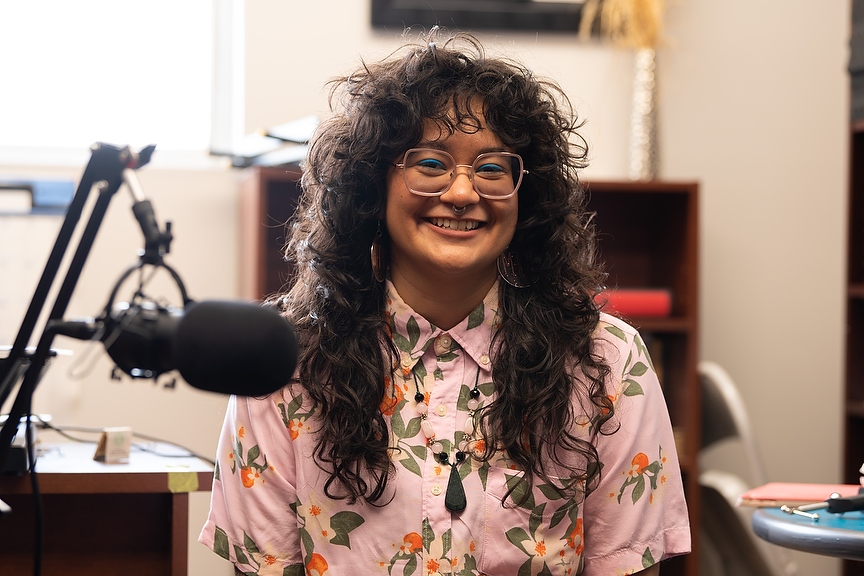
Bolaños has an upcoming episode on intersectionality.
“There's a lot of buzzwords being thrown around right now, and I've just noticed in regular conversations sometimes it feels like people don't actually know the words they're using,” explained Bolaños.
A group of diverse people, all from Grande Prairie, were gathered to discuss their experiences in the community.
Jones says many more topics are coming that are important to youth, such as cancel culture, with youth growing up in the digital age becoming increasingly aware of the risks of posting online and what you say living there forever.
“There are so many topics to talk about,” said Bolaños.
“An infinite potential,” interjected Paquette.
The podcast is looking for more youth to become involved, and they can connect with the podcast at peyakoskanpodcast.com, where you can also listen to it.
“Whatever your identity is, everyone can be a part of something like this and tell the story,” said Jones.
As of press time, four episodes are available for free at the peyakoskanpodcast.com and on podcasting apps.
Peyakôskân comes from a Cree word meaning one family, one bond, one nation.